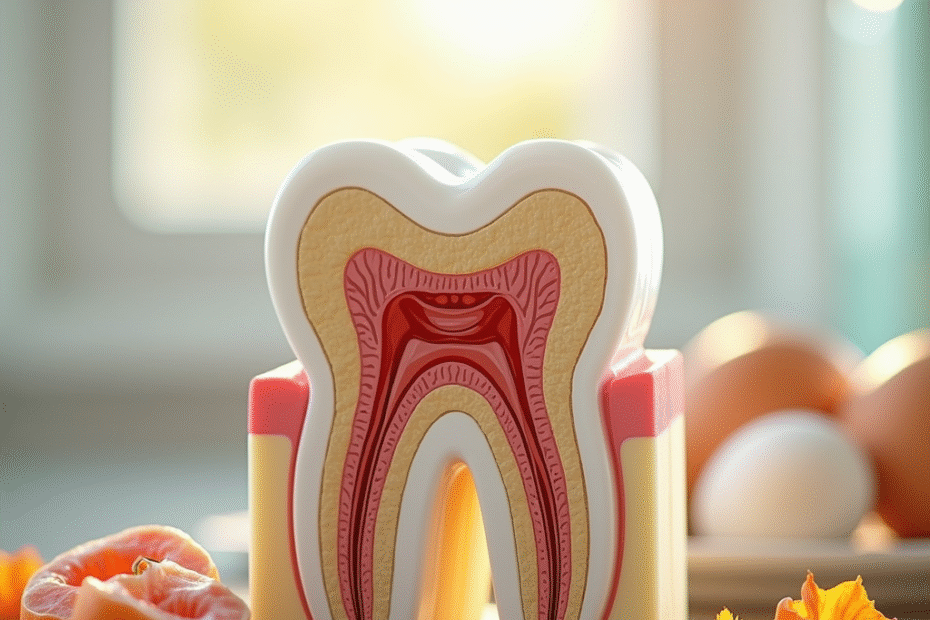Essential Dental Supplements For Your Brightest Smile Ever outline key vitamins and minerals for oral health. From calcium, fluoride, to Vitamin D and A, each supplement aids in maintaining gum health and strong teeth. Aid your dental routine with these helpful nutrients.

The Importance of Calcium for Oral Health
Calcium plays a vital role in maintaining good oral health. It is a key mineral necessary for the development and maintenance of strong teeth and bones. In particular, calcium is crucial for the formation of enamel, the outer layer of the teeth that protects against decay and damage. Without an adequate amount of calcium, the enamel may weaken, leading to an increased risk of cavities and other dental issues.
Furthermore, calcium is essential for supporting the jawbone and keeping it strong. A healthy jawbone is necessary for holding teeth in place and preventing tooth loss. Ensuring an adequate intake of calcium through diet or supplements can help promote overall oral health and reduce the likelihood of developing dental problems.
How Fluoride Strengthens Teeth
Fluoride is another important mineral for maintaining strong and healthy teeth. It helps to strengthen enamel and make it more resistant to acid attacks from plaque bacteria and sugars in the mouth. Fluoride can also reverse early signs of tooth decay by remineralizing areas that have started to weaken.
Additionally, fluoride plays a crucial role in inhibiting the growth of harmful oral bacteria that can cause cavities and gum disease. By incorporating fluoride into your oral care routine through fluoridated toothpaste, mouthwash, or professional treatments, you can significantly improve the strength and durability of your teeth, ultimately reducing the risk of dental issues.
Vitamin D and its Role in Healthy Gums
Vitamin D is essential not only for strong bones but also for maintaining healthy gums. Adequate levels of vitamin D in the body can help reduce inflammation and support the immune system, which is crucial for fighting off oral infections and gum disease. Vitamin D deficiency has been linked to an increased risk of periodontal problems and delayed healing after dental procedures.
Exposure to sunlight is a natural way to boost vitamin D levels, while certain foods like fatty fish, egg yolks, and fortified dairy products can also contribute to your intake. By ensuring you have sufficient vitamin D levels, you can help promote gum health, reduce inflammation, and support overall oral health.

The Benefits of Omega-3 Fatty Acids for Oral Health
Omega-3 fatty acids are essential fats that have numerous health benefits, including promoting oral health. These fatty acids play a crucial role in reducing inflammation throughout the body, which is particularly beneficial for maintaining healthy gums and preventing gum disease. By incorporating omega-3 fatty acids into your diet, you can help reduce the risk of developing periodontal disease, a serious condition that can lead to tooth loss and other oral health issues.
Additionally, omega-3 fatty acids have been linked to a decreased risk of developing oral cancer. Studies have shown that these healthy fats can inhibit the growth of cancer cells in the mouth, making them a valuable addition to a comprehensive oral health regimen. Including foods rich in omega-3 fatty acids, such as fatty fish, flaxseeds, and walnuts, can help support overall oral health and reduce the likelihood of developing oral health problems.
Powerful Antioxidants for a Healthy Mouth
Antioxidants play a critical role in maintaining a healthy mouth by protecting against oxidative stress and inflammation that can contribute to various oral health issues. Omega-3 fatty acids are powerful antioxidants that help combat free radicals in the body, reducing the damage they can cause to oral tissues. By incorporating these healthy fats into your diet, you can support the body’s natural defenses against harmful oxidative processes and promote a healthy mouth.
In addition to their antioxidant properties, omega-3 fatty acids also have anti-inflammatory effects that can benefit oral health. Chronic inflammation in the gums is a common precursor to gum disease and other oral health problems. By consuming foods rich in omega-3 fatty acids or taking supplements, you can help reduce inflammation in the gums, promoting healthier gums and overall oral health.
Conclusion
In conclusion, incorporating omega-3 fatty acids into your diet can significantly benefit oral health by reducing inflammation, preventing gum disease, and decreasing the risk of oral cancer. These essential fats act as powerful antioxidants, protecting oral tissues from damage and combating free radicals. By including foods rich in omega-3 fatty acids, you can support the body’s natural defenses, reduce inflammation in the gums, and promote overall oral health.
Omega-3 fatty acids are a vital component of a comprehensive oral health regimen, offering numerous benefits that can contribute to a healthier mouth and overall well-being.
